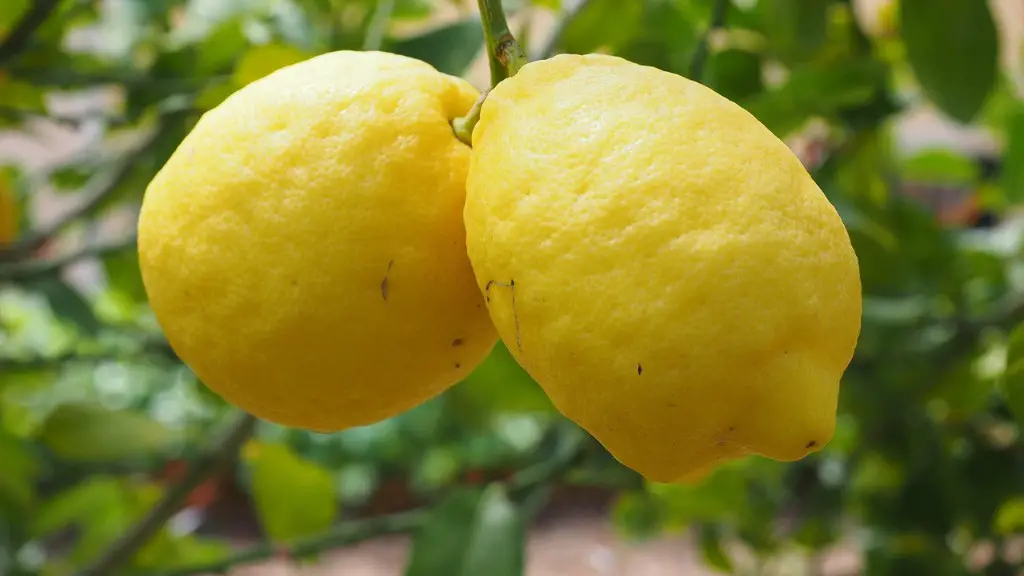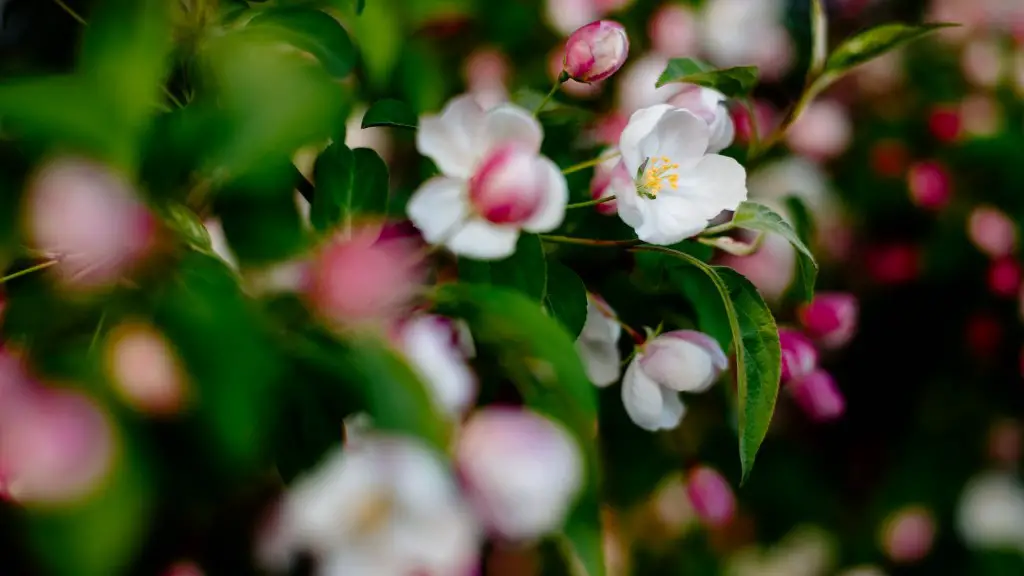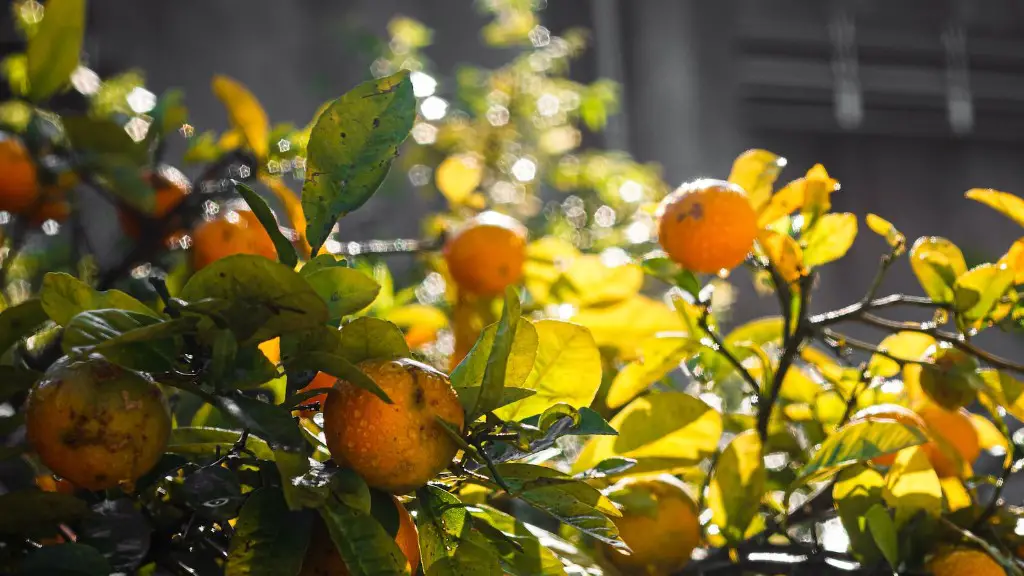Caring for a lemon tree requires the right fertilizer in order to keep it healthy and producing lemons in abundance. There are several types of fertilizer available, so it can be tricky to tell which one is best for a lemon tree. Here are some key considerations to keep in mind when selecting a fertilizer that’s ideal for a lemon tree:
Nutrient Content – Lemon trees require nitrogen (N), phosphorus (P) and potassium (K). The optimal NPK ratio is 6-3-3, meaning that the fertilizer should contain more nitrogen than the other two elements. Look for a fertilizer with an NPK ratio of 6-4-4, as this will provide the best ratio for lemon trees.
Organic vs. Synthetic – Organic fertilizers break down gradually, so the nutrients will be released slowly over time. This can be beneficial for a lemon tree, as it helps to prevent over-fertilizing and potential burn to the roots. Synthetic fertilizers are often formulated to meet the specific needs of citrus trees, but they should also be used in moderation.
Dry vs. Liquid – Both dry and liquid fertilizers are available, but dry fertilizer is preferable for use with a lemon tree. Liquid fertilizers need to be applied more frequently, so they can be more time-consuming to use. Dry fertilizers will last longer, so they may need to be reapplied less frequently.
Timing – Timing is a critical aspect when it comes to fertilizing a lemon tree. It is best to apply fertilizer in the spring and early summer when the tree is actively growing and producing flowers and fruit. Late-season fertilizing can cause additional foliage growth, which can be detrimental to the tree’s health.
These are some of the important factors to consider when selecting a fertilizer for a lemon tree. Knowing these key points can help you ensure that you select a fertilizer that is best suited for your lemon tree, which will help to keep the tree healthy and producing the maximum amount of lemons.
Organic Fertilizer for Lemon Trees
Organic fertilizers are a great option for lemon trees, providing a slow release of nutrients that won’t burn the roots. The best organic fertilizer for a lemon tree is one that is specifically formulated for citrus trees, as it will contain the optimal NPK ratio as well as extra micronutrients that are beneficial for lemon trees. Some examples of appropriate organic fertilizers include cottonseed meal, alfalfa meal and kelp meal.
These organic fertilizers can be applied to the soil directly or mixed into the soil with a spade or trowel. The frequency of application will depend on the type of organic fertilizer being used. For example, cottonseed meal needs to be applied once every 3-4 months, while alfalfa and kelp can be applied every 6-8 weeks.
Organic fertilizers are often more expensive than synthetics, but they are free of any dangerous chemicals and are a great way to help keep your lemon tree healthy and productive. When used properly, they can provide the best option for lemon tree fertilization.
Synthetic Fertilizers for Lemon Trees
Synthetic fertilizers are formulated specifically for citrus trees, so they may be a better choice for those who are looking for an easy and straightforward option. Most synthetic fertilizers contain the optimal NPK ratio of 6-4-4 and the appropriate micronutrients for citrus trees. These synthetic fertilizers should be applied to the soil every 6-8 weeks, as they won’t last as long as organic fertilizers.
Synthetic fertilizers are more affordable than organic options, making them ideal for those on a budget. However, it is important to use these fertilizers in moderation, as they can be more potent and can lead to over-fertilization. Use them as directed, and they can provide a great option for feeding your lemon tree.
Organic vs Synthetic Fertilizers
Organic and synthetic fertilizers offer different advantages and disadvantages when it comes to feeding a lemon tree. Organic fertilizers are more expensive, but they break down slowly and provide continuous nourishment over time. Synthetic fertilizers are more affordable, but they must be applied more frequently.
Organic fertilizers can also be easier to apply, as they often come in pellet form that can be scattered around the tree’s root zone. Synthetic fertilizers typically require a sprayer or other dispensing device for optimal application. It is important to remember that both types of fertilizers should be used in moderation in order to prevent burn to the roots.
How Much Fertilizer for a Lemon Tree?
When using any type of fertilizer for a lemon tree, it is important to use the correct amount. Too little fertilizer won’t provide enough nutrients, while too much can be dangerous and can lead to burn and other complications. Generally speaking, a lemon tree should be fertilized with 2-3 pounds of fertilizer per year. This should be split into two or three applications throughout the season.
For example, if you are using a 6-3-3 fertilizer, the amount applied per application should be 1 pound per application. Of course, this amount can be adjusted depending on the size and age of the tree, as well as other factors. As always, it is best to consult with a certified horticulturist for more information.
Fertilizer Application Tips
When applying fertilizer to a lemon tree, it is important to keep a few key points in mind. First of all, make sure to apply the fertilizer away from the trunk, focusing on the areas near the root zone. This will help to prevent burning the tree’s roots. Be sure to water the tree thoroughly after applying the fertilizer, as this will help the nutrients to be available to the tree.
It is also important to fertilize at the right time. Early spring or early summer is usually the best time for fertilizing a lemon tree. Fertilizing too late in the season can cause additional growth, which can be detrimental to the health of the tree. Remember to never overfertilize, and use the recommended amounts as indicated on the fertilizer packaging.
Conclusion
Selecting the right fertilizer for a lemon tree is an important step in maintaining healthy soil and maximizing lemon production. Understanding the key considerations involved, such as nutrient content and timing, can help ensure that you select the best fertilizer for your lemon tree. Organic fertilizers can provide a slow release of nutrients, while synthetic fertilizers may be easier to apply. Be sure to use the appropriate amount, and always water thoroughly after fertilizing to get the best results.



